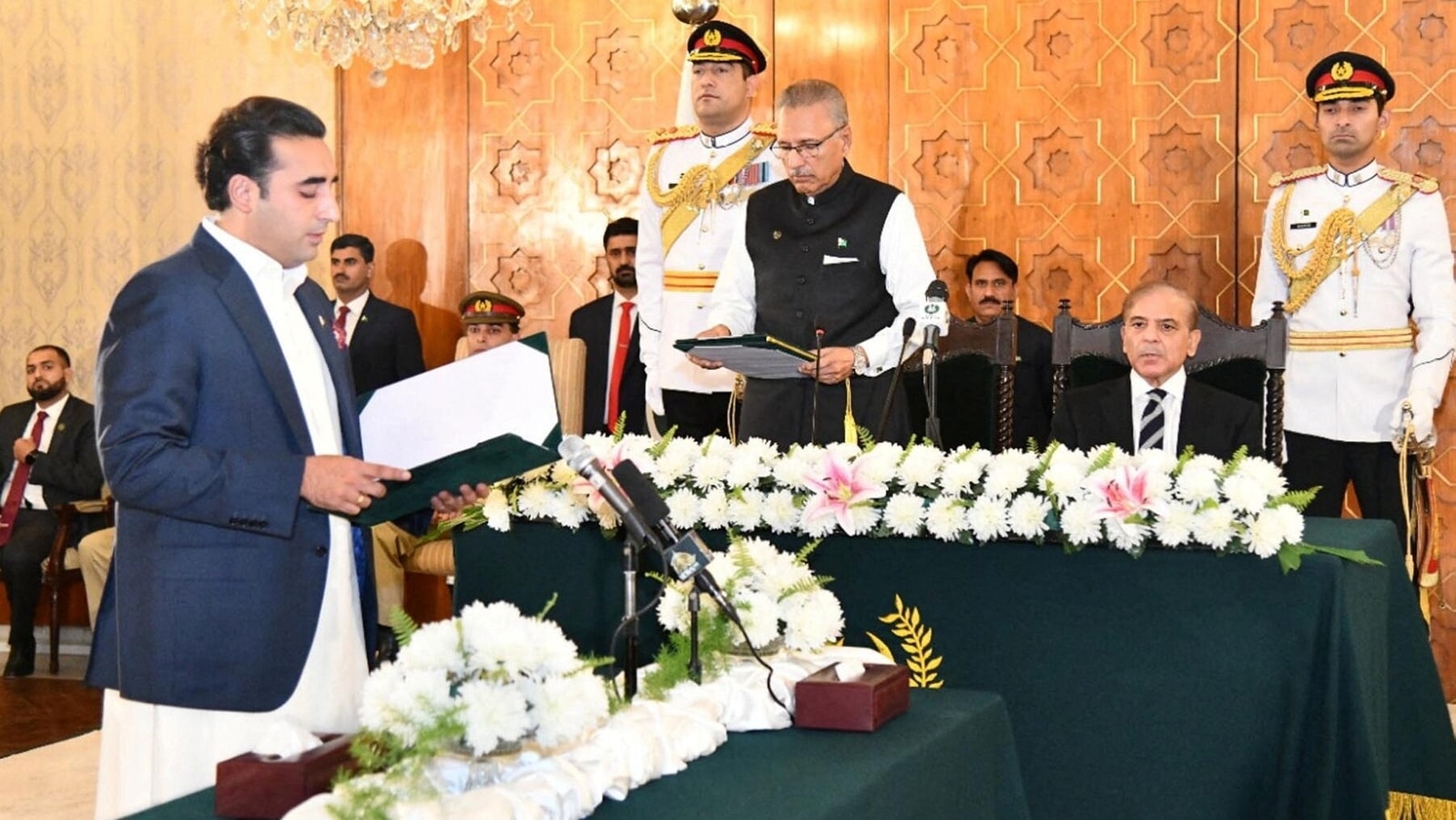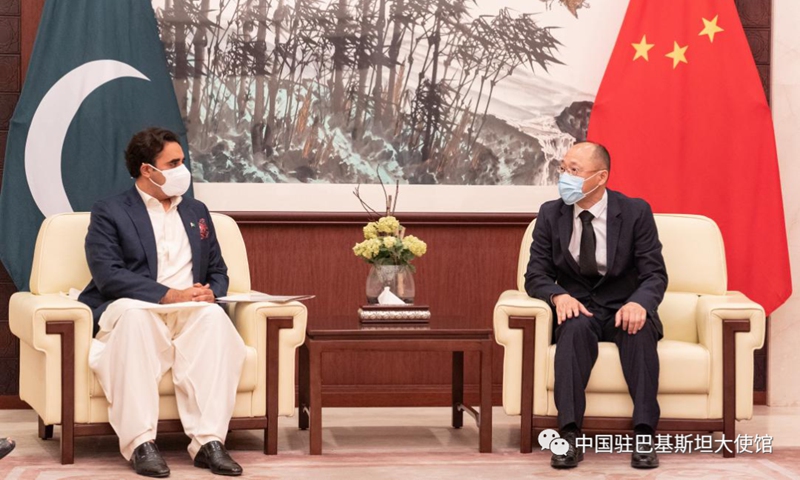By RAHIM NASAR
The new foreign minister showed promise during his first diplomatic trip to the US and EU.History repeats itself. The memories of legends remain alive among those nations that strive for dignity and integrity. In 1963, Zulfikar Ali Bhutto became Pakistan’s foreign minister at a time when the country was facing several problems. Its security, economy, political scenarios, and relations with the international community were at all-time lows. For a young and determined foreign minister like Bhutto, dealing with regional and extra-regional powers, and resolving diplomatic issues was a daunting challenge. However, Bhutto was able to play a crucial role in presenting Pakistan’s positive image and normalizing ties with the international community. This year, Bilawal Bhutto Zardari has also taken the responsibility to hold the position of foreign minister, in a state where the former Imran Khan-led government not only isolated Pakistan at the global level, but also weakened diplomatic ties with all the major powers, especially the US. A realistic approach with a focus on both moral integrity and professional skills authenticate the working strategy of a leader. Already, Bilawal has shown that he possesses the required standards to address the prevailing foreign-policy challenges being faced by Pakistan. In his book Diplomacy (1994), the prominent American diplomat Henry Kissinger wrote, “Intellectuals analyze the operations of international systems; statesmen build them.” The growing role of Bilawal as a foreign minister to enhance Pakistan’s ties with the US, and the Western world in terms of business and trade, bilateral and multilateral cooperation, diplomacy, engagements on security and political grounds, and extending friendly relations are evidence that he is building the operations of international systems to stabilize Pakistan’s short- and long-term interests. In international cooperation, every state wants to maximize the chances of positive or constructive engagement with the global community, and ensure gains from public goods globally. Bilawal is also engaging friendly states in a utilitarian way to reverse the failures of Imran Khan’s regime and improve cooperative coordination to overcome challenges.Last week, Bilawal paid his first official visit to the US and Europe at a time when the ousted prime minister Imran Khan was calling the removal of his government an American conspiracy in his public gatherings.On March 27, addressing a huge public rally in Parade Avenue in Islamabad, Khan waved a white paper before the audience, claiming it was a threatening letter of foreign actors aiming to overthrow his government. Khan added that if someone wanted confirmation of the letter’s contents, he could show it off the record. To address the issue, the National Security Council of Pakistan called an immediate meeting to discuss it. The meeting issued a declaration that rejected Khan’s allegations.
The US State Department has also rejected Khan’s allegations, and called his ouster Pakistan’s internal issue. The US says it had no role in the political tension in Pakistan that resulted in the ouster of the government led by Pakistan Tehreek-e-Insaf (PTI). In the lead-up to Bilawal’s trip overseas, it seemed that he would not get much response from the US and the European Union, but his statesmanship qualities helped him present Pakistan’s case at the international level in a very responsible and professional manner. During his visit to the US, at a press conference at the UN Headquarters in New York, when Bilawal was asked by a journalist whether Imran Khan’s visit to Russia had led to a trust deficit and damaged Pakistan’s ties with the US and its allies, he categorically defended the ex-prime minister’s visit as part of Pakistan’s foreign policy. Referring to the invasion of Ukraine, Bilawal said Khan could not have been expected to know what Russia was planning. In this way, Bilawal demonstrated a sense of fairness and diplomacy even toward a political rival. In contrast, there is no doubt the irresponsible statements and undiplomatic attitude of Imran Khan and his team damaged Pakistan’s foreign relations. Islamabad’s ties with its neighbors reached a low point, even with traditionally friendly countries like China. Economically, Pakistan is a dependent state. Ruining relations with the United States means ruining relations with the entire Western world. Weakening Pakistan’s relationship with a superpower is tantamount to isolating itself from the world and marching toward economic and security challenges. Bilawal and his team will have to struggle for at least a year to normalize diplomatic ties and avoid trust deficits due to the role played by Imran Khan’s government. Interestingly, Bilawal Bhutto Zardari’s maternal grandfather Zulfikar Ali Bhutto’s relations with China and the Islamic world, and his mother Benazir Bhutto’s relations with the US and the West, were always excellent. Bilawal himself grew up in the West, which will surely help him to utilize his maximum potential in bringing diplomatic ties back to a friendly and cooperative state. Additionally, Pakistan’s powerful military establishment has many expectations from Oxford-educated Bilawal Bhutto to bring Pakistan’s ties with Washington and Brussels to a normal position. Bilawal’s maiden visit as foreign minister will make an impression on his ability to lead the Pakistan Peoples Party forward in upcoming general elections. Presenting Pakistan’s soft and friendly image at the global level is a colossal task that needs commitment and sterling working strategy to address our regional and global interests. The successful implementation of foreign policy will be Bilawal’s best electoral card to secure the PPP a majority in the upcoming general elections. https://asiatimes.com/2022/06/bilawal-already-addressing-pakistans-foreign-policy-challenges/




No comments:
Post a Comment